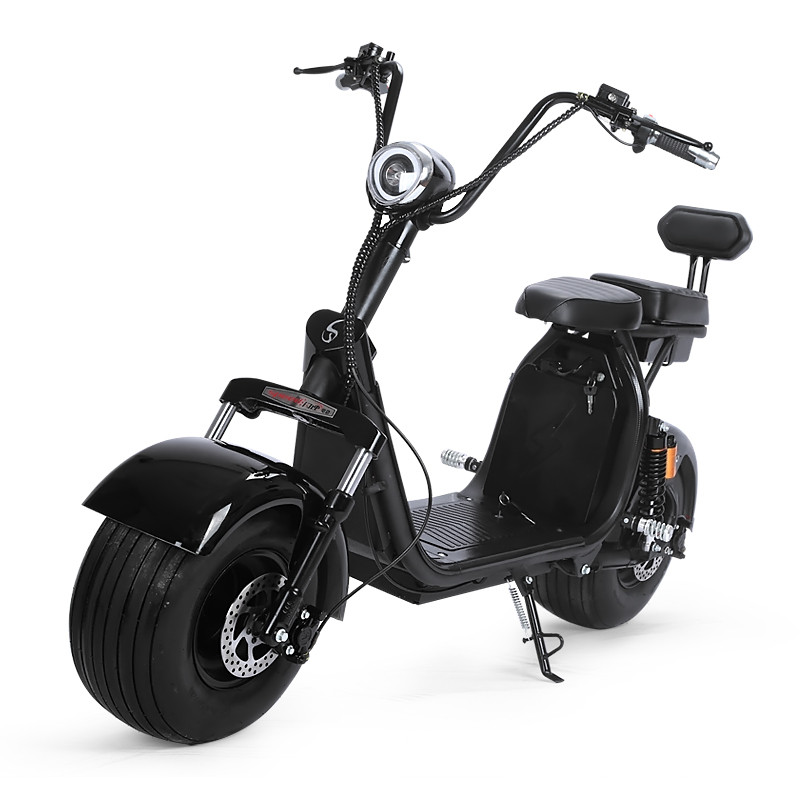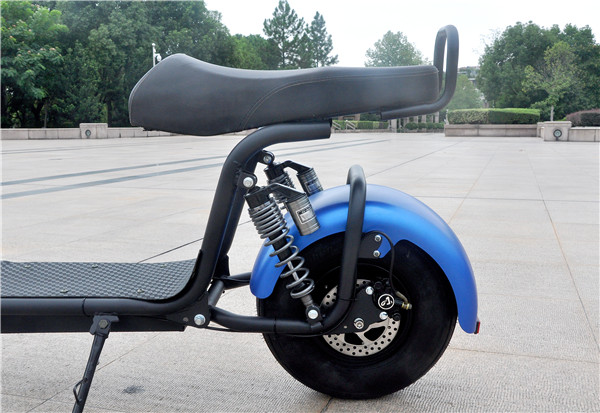Pittsburghers telling the stories of Pittsburgh.
You could see those rental electric scooters back in Pittsburgh by the end of the year. E Scooters

Almost a month after a lawsuit was filed on Sept. 6 against the City of Pittsburgh by people injured on the rental scooters, the PA House of Representatives adopted legislation on Oct. 4 that would force the city to run another pilot program for another year. The amendment was attached to a bill critical to fund the state government. The Senate version of the bill does not yet include the scooter mandate.
The e-scooter amendment was added to the state budget bill by the House majority leader, State Rep. Matthew Bradford (D-Montgomery). The legislation mandates Mayor Ed Gainey to issue an executive order by Dec. 31, 2023, authorizing a one-year pilot project in which the rental scooters would be allowed in Pittsburgh and nowhere else in the state.
When Beth Rementer, a spokesperson with Bradford’s office, was asked why a legislator on the eastern side of the state would amend the state fiscal bill to make scooters available in Pittsburgh, she only confirmed that the bill had been amended.
The legislation takes Pittsburgh City Council and the mayor’s approval of the program off the table, stating that Pittsburgh, “shall adopt an ordinance and executive order authorizing the shared electric low-speed scooter pilot program by Dec. 31, 2023.”
However, Pittsburgh City Council can adopt an ordinance that sets parameters of the program beyond the state’s requirements.
The state legislation also states that the scooters are to be rentals and are not allowed on highways or sidewalks. And, in a nod to public complaints, abandoned scooters have to be returned to corrals within three hours of their abandonment. The legislation also states that the scooters may not be rented to anyone under age 16.
The legislation imposes a requirement for the scooter company to have insurance of up to $2 million per incident.
Privately owned personal scooters are currently illegal for use on the roadways and will remain so under this legislation.
The state Senate had been considering a bill that would allow cities to have private scooter rental companies in every city in the state except Philadelphia. That legislation also would not have legalized the use of personal electric scooters. It was tabled in June and not taken up again. A scooter blocks handicapped access to a sidewalk in Squirrel Hill. Photo by Ann Belser.
The proposed pilot calls for Pittsburgh to post a report on the scooters, including how many rides were taken, how many riders were involved in accidents, how many scooters were abandoned outside of corrals, how many riders were fined for violating local ordinances, and information on the safety, mobility and the economic impacts of the program.
The previous two-year scooter pilot ended in July.
As the test period ran down, Pittsburgh City Council held a hearing on the program during which wheelchair users testified that their sidewalk access had been blocked by the scooters, forcing them into the street. A blind resident said she had fallen over a scooter that was parked across a sidewalk that she had not detected with her white cane.
Other residents applauded the scooter program saying they were able to get around quickly and easily on them.
City Councilmember Barb Warwick (District 5), who sponsored the public hearing on the scooters, said the legislation pending in the state legislature is not clearly written and seems to contradict itself.
“At the end of the day, if we have a scooter program, it has to be one that is accountable and doesn’t cause harm to the people with the most dire mobility needs,” she said. “That means no scooters across sidewalks, no scooters in people’s yards, and there have to be safeguards in place to insure that the scooters themself are safe for the riding public.” Lawrence Chertik preparing for a helicopter tour (undated photo). Chertik died after the scooter he rented hit a pothole. Photo courtesy of Kate Chertik.
Warwick said she would rather see an extension of the POGOH e-bicycle rentals.
“Our POGOH program is so great. The goal is really ambitious: to have a station within a half mile of everyone’s house. Let’s have that. Let’s change the e-bike and bicycle culture in Pittsburgh,” she said.
The city is currently among the defendants in a lawsuit filed on behalf of the estate of Lawrence Chertik who died after lacerating his spleen when he flipped forward on a scooter after hitting a pothole. Two other people joined the lawsuit, a 21-year-old who fractured his skull, and a tourist who lacerated her liver. Both of their injuries were sustained on scooter crashes.
The city database of injuries created during the previous pilot program was incomplete, in part because it depended on users reporting injuries.
Chertik, for instance, died before he could report his death and the tourist, Jennifer Vining, who was in town to see Kenny Chesney, said she did not know there was a way to report her injuries.
The mayor’s office did not respond to requests for comment for this article. MORE ON RENTAL SCOOTERS PA legislature puts brakes on e-scooters but Spin isn’t giving up July 20, 2023July 19, 2023 Right-to-Know request finds more serious injuries from Spin scooter crashes in Pittsburgh June 15, 2023June 15, 2023 Are Spin scooters a helpful way to get around or a public safety issue? May 22, 2023May 23, 2023
Ann Belser is the owner of Print, a newspaper covering Pittsburgh's East End communities. After receiving a master’s degree from the Columbia University Graduate School of Journalism, she moved to Squirrel Hill and was a staff writer for the Pittsburgh Post-Gazette for 20 years where she covered local communities, county government, courts and business.

Scooter Fat Tire Sign up for the free NEXT newsletter